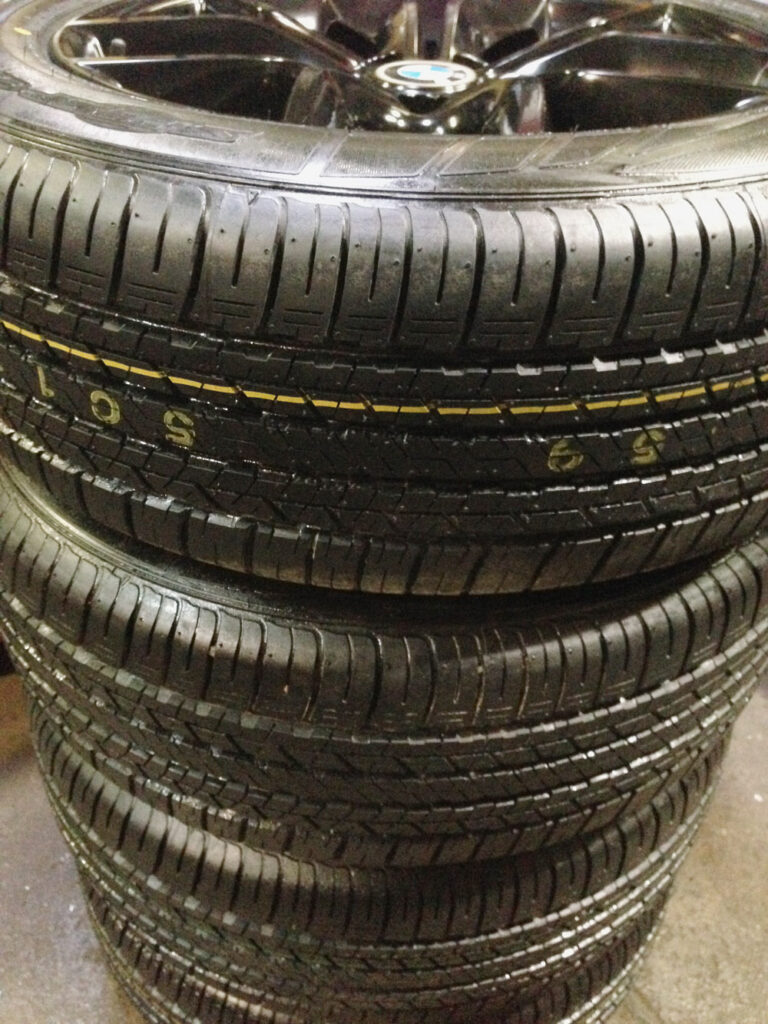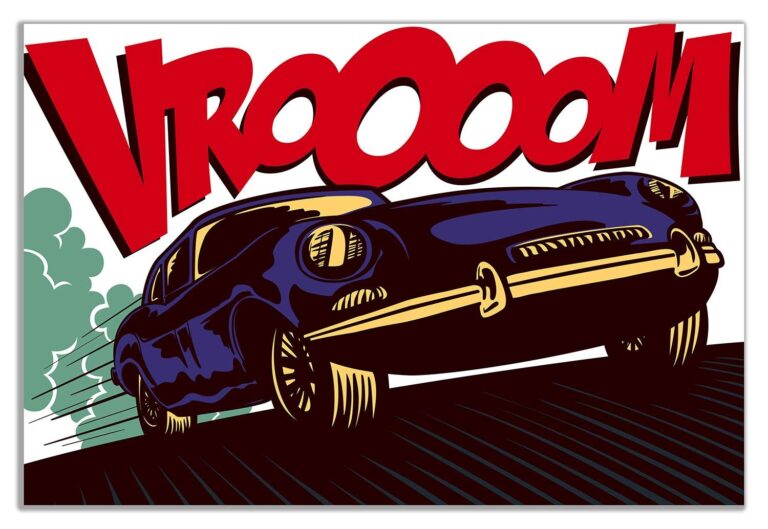Yard Spotter Trucks For Sale: Your Comprehensive Guide to Acquiring the Right Terminal Tractor
Yard Spotter Trucks For Sale: Your Comprehensive Guide to Acquiring the Right Terminal Tractor cars.truckstrend.com
In the bustling world of logistics, distribution, and manufacturing, efficiency is paramount. Every minute counts, and the smooth flow of goods within a facility can make or break an operation’s profitability. At the heart of this internal movement lies a specialized, often unsung hero: the yard spotter truck. Also known as terminal tractors, shunt trucks, yard dogs, or hostlers, these robust machines are specifically designed to move semi-trailers swiftly and safely within confined spaces like shipping yards, distribution centers, intermodal facilities, and ports.
For businesses looking to optimize their material handling, reduce wear and tear on their over-the-road trucks, and enhance workplace safety, investing in a yard spotter truck is a strategic decision. This comprehensive guide will delve into everything you need to know when considering "Yard Spotter Trucks For Sale," helping you navigate the market and make an informed purchase that perfectly fits your operational needs.
Yard Spotter Trucks For Sale: Your Comprehensive Guide to Acquiring the Right Terminal Tractor
What is a Yard Spotter Truck and Why Do You Need One?
A yard spotter truck is a heavy-duty vehicle engineered for the sole purpose of moving semi-trailers. Unlike conventional semi-trucks, which are built for long-haul highway travel, yard spotters feature a unique design optimized for short-distance, repetitive tasks within a contained yard. Key characteristics include a short wheelbase for tight turning radii, an elevated cab for superior visibility, a powerful hydraulic fifth wheel that can be raised and lowered quickly from within the cab, and typically an automatic transmission for ease of operation.
Why are they indispensable for modern operations?
- Enhanced Efficiency: Yard spotters significantly speed up trailer movement. Their design allows drivers to quickly hook up, move, and drop trailers without ever leaving the cab, drastically reducing the time it takes compared to using a road tractor.
- Reduced Costs: Using a dedicated yard spotter prevents unnecessary wear and tear on expensive over-the-road trucks, saving on fuel, maintenance, and depreciation for your primary fleet. It also frees up your line-haul drivers to focus on their core job – transporting goods.
- Improved Safety: With 360-degree visibility, robust braking systems, and a design that minimizes backing maneuvers, yard spotters contribute to a safer working environment. They reduce the risk of accidents, property damage, and injuries that can occur when less specialized equipment is used in tight spaces.
- Increased Throughput: By streamlining trailer movement, yard spotters enable higher volumes of goods to be processed, loaded, and unloaded, directly contributing to increased operational capacity and faster turnaround times.
- Specialized Design: Their purpose-built nature means they excel at tasks that would be cumbersome and inefficient for other vehicles, such such as navigating tight docks, backing into difficult spots, and handling heavy loads repetitively.

Industries that heavily rely on yard spotters include logistics and warehousing, retail distribution, manufacturing, shipping ports, rail intermodal facilities, and even large construction sites.

Key Considerations When Buying a Yard Spotter Truck
Acquiring a yard spotter is a significant investment. Careful consideration of several factors will ensure you choose a truck that aligns with your operational demands and budget.
1. New vs. Used: The Cost-Benefit Analysis
- New Yard Spotters:

- Pros: Latest technology, full manufacturer warranty, lower immediate maintenance costs, often higher fuel efficiency, customizable features.
- Cons: Higher upfront cost, immediate depreciation.
- Used Yard Spotters:
- Pros: Significantly lower upfront cost, slower depreciation, immediate availability.
- Cons: Potentially higher maintenance costs (especially for older units), no warranty (or limited), unknown history (if not properly vetted), may lack modern features or emission compliance.
- Recommendation: For used units, always request detailed maintenance records, conduct a thorough inspection by a certified mechanic, and ideally, test the unit in your own yard environment.
2. Fuel Type: Diesel, Electric, or CNG?
- Diesel: The most common and proven choice.
- Pros: Powerful, reliable, established infrastructure for fueling and maintenance.
- Cons: Higher emissions (though modern engines are cleaner), fluctuating fuel prices, engine noise.
- Electric: A growing segment driven by environmental concerns and operational cost savings.
- Pros: Zero tailpipe emissions, quieter operation, lower "fuel" (electricity) costs, reduced maintenance (fewer moving parts).
- Cons: Higher upfront cost, limited range/battery life per charge, charging infrastructure requirements, longer "refueling" time.
- Recommendation: Ideal for multi-shift operations with dedicated charging times, or facilities prioritizing sustainability.
- CNG (Compressed Natural Gas): A niche option for those with access to natural gas infrastructure.
- Pros: Lower emissions than older diesel, potentially lower fuel costs depending on regional gas prices.
- Cons: Limited fueling infrastructure, specialized maintenance.
3. Engine Hours vs. Mileage (for Used Trucks)
For yard spotters, engine hours are a far more accurate indicator of wear and tear than mileage. These trucks spend most of their time idling or operating at low speeds. A truck with low mileage but high engine hours could be more worn out than one with higher mileage but fewer hours.
4. Lift Capacity / Fifth Wheel Rating
Ensure the fifth wheel can handle the maximum gross weight of the trailers you’ll be moving. Standard capacities range from 50,000 lbs to 100,000 lbs or more. Overloading can lead to premature wear and safety hazards.
5. Cab Type and Features
- Single-Person vs. Two-Person Cab: Most yard spotters are single-person, but some offer space for a second person for training or supervisory roles.
- Driver-Side vs. Center-Mounted Cab: Affects visibility and ease of entry/exit.
- Comfort Features: Air conditioning, heating, air-ride seats, power mirrors, and ergonomic controls can significantly impact driver comfort and productivity, especially during long shifts.
- Safety Features: Backup cameras, proximity sensors, LED lighting, and telematics systems (for tracking and diagnostics) are increasingly common and beneficial.
6. Road Legal vs. Off-Road
- Off-Road (Dedicated Yard Spotter): The most common type. These are not designed or legally equipped for public roads. They lack necessary lighting, braking systems, and registration. Optimized solely for yard operations.
- Road Legal (DOT-Compliant): Equipped with full lighting packages, air brakes, mirrors, and often a higher top speed, allowing them to operate on public roads between facilities. They typically cost more and may have slightly less maneuverability in tight yard spaces due to their road-legal requirements. Determine if your operations require inter-facility public road travel.
Types of Yard Spotter Trucks
While the core function remains the same, yard spotters come in variations tailored for specific environments and needs:
- Standard Diesel Yard Spotters: The workhorses of the industry, widely available and suitable for most general warehousing and distribution applications.
- Electric Yard Spotters: Gaining traction in facilities aiming for reduced emissions, noise, and lower operating costs (electricity vs. diesel). Ideal for indoor operations or facilities with charging infrastructure.
- Heavy-Duty/Port Spotters: Built for extreme loads and continuous operation in ports, intermodal yards, and heavy manufacturing. These often feature reinforced frames, higher fifth-wheel capacities, and specialized axles.
- Railcar Movers (Specialized): While not strictly yard spotters, some terminal tractors can be equipped with railcar coupling capabilities, allowing them to shunt railcars in addition to trailers.
- Autonomous Yard Spotters: An emerging technology, these trucks are designed to operate without a driver in controlled environments, promising even greater efficiency and safety in the future. Currently in pilot programs.
Where to Find Yard Spotter Trucks For Sale
The market for yard spotter trucks is robust, offering several avenues for purchase:
- Authorized Dealerships:
- Pros: Access to new models, manufacturer warranties, certified used units, financing options, parts, and service support. Major brands include Kalmar Ottawa, Capacity Trucks, Terberg, and Autocar.
- Cons: Often higher prices for new units.
- Online Marketplaces & Listing Sites:
- Examples: TruckPaper.com, MyLittleSalesman.com, CommercialTruckTrader.com, EquipmentTrader.com, Ritchie Bros. Auctioneers (for auction listings), eBay, and various specialized industrial equipment sites.
- Pros: Wide selection, competitive pricing, ability to compare many options from different sellers.
- Cons: Requires careful vetting of sellers, potential for misrepresentation, may need to arrange your own inspection and transport.
- Equipment Auctions:
- Examples: Ritchie Bros., IronPlanet, local industrial auctions.
- Pros: Potential for significant savings, especially on used equipment.
- Cons: "As-is" sales, limited opportunity for inspection, competitive bidding, risk of hidden issues.
- Direct from Fleets/Private Sellers:
- Companies upgrading their fleet or downsizing may sell their used yard spotters directly.
- Pros: Potentially good deals, direct communication with the previous owner.
- Cons: Limited selection, no warranties, may require more legwork for due diligence.
- Equipment Brokers:
- These professionals can source trucks for you, leveraging their network.
- Pros: Save time, access to off-market deals.
- Cons: Brokerage fees.
Tips for a Successful Purchase
- Clearly Define Your Needs: Before looking, understand your daily operational volume, the weight of your heaviest trailers, yard layout, desired speed, and budget.
- Set a Realistic Budget: Factor in not just the purchase price, but also potential delivery costs, taxes, registration (if road-legal), insurance, and estimated ongoing maintenance.
- Thorough Inspection is Critical (Especially for Used):
- Engine and Transmission: Check for leaks, unusual noises, smooth shifting.
- Hydraulics: Inspect the fifth wheel lift mechanism, hoses, and cylinders for leaks or damage.
- Brakes: Test both service and parking brakes.
- Tires: Check tread depth and condition.
- Frame: Look for cracks, welds, or signs of major accidents.
- Cab Interior: Assess general condition, functionality of controls, AC/heat.
- Consider a Pre-Purchase Inspection (PPI) by an independent, certified mechanic.
- Review Maintenance Records: A well-documented service history indicates a unit that has been cared for and can provide insights into potential future issues.
- Test Drive: Operate the truck in a yard setting if possible. Assess maneuverability, braking, and overall performance under simulated working conditions.
- Verify VIN and Ensure the VIN on the truck matches the title and that there are no liens against the vehicle.
- Consider After-Sales Support: Where will you get parts? Is there a reliable service center nearby? Parts availability and service support are crucial for minimizing downtime.
- Explore Financing Options: Dealerships and third-party lenders offer various financing solutions, including loans and leases.
Yard Spotter Truck Price Guide (Estimated Ranges)
Prices for yard spotter trucks vary significantly based on brand, age, condition, features, fuel type, and market demand. The table below provides estimated ranges and key factors influencing pricing, rather than definitive current market prices.
| Category | Estimated Price Range (USD) | Key Factors Influencing Price | Pros | Cons |
|---|---|---|---|---|
| New Diesel Spotter | $100,000 – $180,000+ | Brand (Kalmar Ottawa, Capacity, Autocar), engine tier, features (AC, auto-grease, telematics), warranty | Latest tech, full warranty, lowest initial maintenance | Highest upfront cost, immediate depreciation |
| Used Diesel Spotter | $25,000 – $100,000 | Year, engine hours, condition, maintenance history, make, emissions compliance | Significant cost savings, quicker ROI, readily available | Potential higher future maintenance, no warranty, unknown history |
| New Electric Spotter | $180,000 – $300,000+ | Battery capacity, charging speed, brand, advanced features | Zero emissions, lower operating costs (fuel, some maintenance), quiet | Highest upfront cost, charging infrastructure needed, range anxiety |
| Used Electric Spotter | $80,000 – $180,000 | Year, battery health, charging cycles, overall condition | Environmental benefits at lower entry price | Battery degradation, limited availability, charging infrastructure still needed |
| Heavy-Duty/Port Spotter | $150,000 – $250,000+ (New) | Enhanced frame, higher fifth wheel capacity, specialized components | Built for extreme loads & continuous duty, very robust | Higher cost, potentially overkill for standard operations |
Note: These are approximate ranges and can fluctuate based on market conditions, location, and specific configurations. Always obtain direct quotes for accurate pricing.
Frequently Asked Questions (FAQ)
Q1: What is the main difference between a yard spotter and a regular semi-truck?
A1: A yard spotter is purpose-built for moving trailers within a confined yard. It has a short wheelbase, elevated cab, and a hydraulic fifth wheel for quick coupling/uncoupling. A regular semi-truck is designed for long-haul highway travel, focusing on speed, fuel efficiency, and road legality over rapid yard maneuverability.
Q2: Are yard spotter trucks road legal?
A2: Most yard spotter trucks are not road legal. They are designed for off-road, private property use. However, some manufacturers offer "DOT-compliant" or "road-legal" models that include necessary lighting, braking systems, and safety features for public road use. Ensure you specify your need when purchasing.
Q3: How often do yard spotters need maintenance?
A3: Due to their demanding, stop-and-go operation and high engine hours, yard spotters typically require more frequent maintenance than road tractors. Follow manufacturer recommendations, but generally, oil changes, fluid checks, and hydraulic system inspections are needed every 250-500 engine hours, or more frequently for severe duty cycles.
Q4: What are the leading brands for yard spotter trucks?
A4: The dominant brands in the North American market are Kalmar Ottawa and Capacity Trucks. Other notable manufacturers include Terberg (primarily in Europe, but expanding globally) and Autocar (with their ACTT model).
Q5: What is the typical lifespan of a yard spotter truck?
A5: With proper maintenance, a yard spotter can have a lifespan of 15,000 to 25,000 engine hours, or even more. This often translates to 10-15 years or more of operational life, depending on the intensity of use.
Q6: Is investing in an electric yard spotter worth the higher upfront cost?
A6: For many operations, yes. While the initial purchase price is higher, electric spotters offer significant long-term savings on fuel (electricity is cheaper than diesel), reduced maintenance costs (fewer moving parts, no oil changes), and eliminate emissions, which can contribute to corporate sustainability goals and potentially qualify for incentives. The return on investment depends on duty cycle, electricity costs, and diesel prices.
Q7: How do I determine the right size/capacity for my needs?
A7: Assess the maximum gross weight of the heaviest loaded trailers you will move, the grade of your yard (slopes require more power), and the typical number of trailers moved per shift. This will help you choose the appropriate engine power, fifth wheel lift capacity, and overall duty rating.
Conclusion
The decision to acquire a yard spotter truck, whether new or used, is a strategic move that can significantly enhance the efficiency, safety, and profitability of your logistics and material handling operations. By understanding the core benefits, meticulously evaluating your specific needs, and diligently researching the market, you can ensure that your investment in a terminal tractor pays dividends for years to come. From optimizing trailer flow to protecting your valuable road fleet, a well-chosen yard spotter is an indispensable asset in the dynamic world of modern supply chains.




